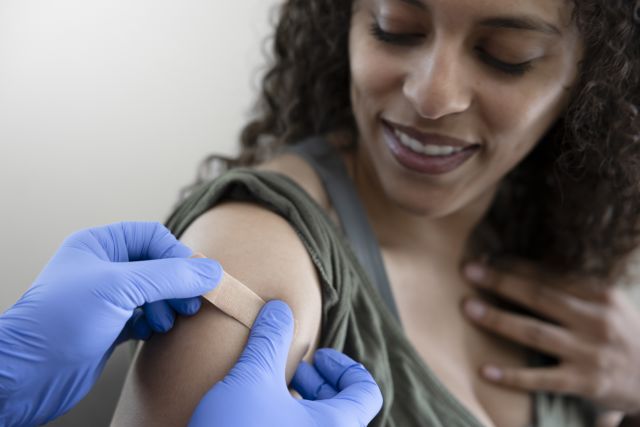Your immunization record is a valuable document that keeps track of your immunization history—from when you first received vaccinations until the present.
Not only is important to have a record of your vaccinations, it’s critical to keep it updated. If you are just starting to make an immunization record—or thinking about it—here’s where to begin.
Why immunization records are critical
Each year, infections that can be prevented by vaccinations cause many thousands of long-term illnesses, hospitalizations, and even deaths, according to the Centers for Disease Control and Prevention (CDC). But being vaccinated on time can help protect you against them, including:
- Pneumococcal disease, which causes serious illness including pneumonia (infection of the lungs)
- COVID-19, which causes a serious respiratory infection that affects the body's breathing system, and other complications
- Influenza ("the flu"), which can cause mild to severe infection of the nose, throat, and sometimes the lungs
- Human papilloma virus (HPV), which causes the most common sexually transmitted infection and can cause cancer later in life
- Shingles, a very painful condition that is caused by reactivation later in life of the chicken pox virus
- Tetanus ("lockjaw"), which causes painful muscle contractions
- Pertussis ("whooping cough"), which causes severe coughing and breathing problems
Vaccines are not just for children. Some shots require boosters (additional doses) in adulthood; other vaccines have become available just within the last two decades and so you may not have had them as a child.
Creating a vaccination record
Though electronic health records (EHRs) can help collect and organize personal medical data such as vaccinations, until recent years there has been no single tool for this purpose. So, if you don’t have an existing, up-to-date immunization record it is up to you to gather the material.
While it’s true that vaccine tracking can take a lot of work, there are several places and people who may have your immunization information available. Start by checking with the following:
- Your parents or other caregivers
- Current and former healthcare providers (HCPs)
- Scrapbooks from your childhood
- Your high school or college
- Previous employers
In addition, all state health departments keep immunization registries, though they may not cover all ages.
Once you’ve found all the personal vaccination information you can, take it to your HCP and ask to have it documented in an official immunization record and in any applicable registries. Then keep your supporting materials in a safe place, such as a locked safe.
If certain records are not available, ask your HCP what to do. Blood tests can be done to check whether you’ve received certain vaccinations, which could help eliminate unnecessary shots.
Keeping your immunization record updated
Once you have created your immunization record, be sure to keep it current. Your HCP should update it with new vaccinations or booster shots. If you meet with a new HCP, bring a paper copy to any visits or have a digital copy sent to the office beforehand. Make sure all new vaccinations are added to the file. It’s also a good idea to keep a personal record someplace where you can easily find it, such as in your wallet.
Collecting and keeping your immunization record takes time and effort. But it’s the best way to make sure you’re protected against serious illnesses in the future.







